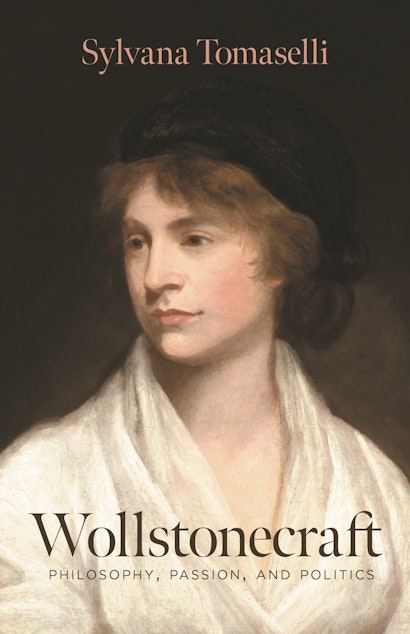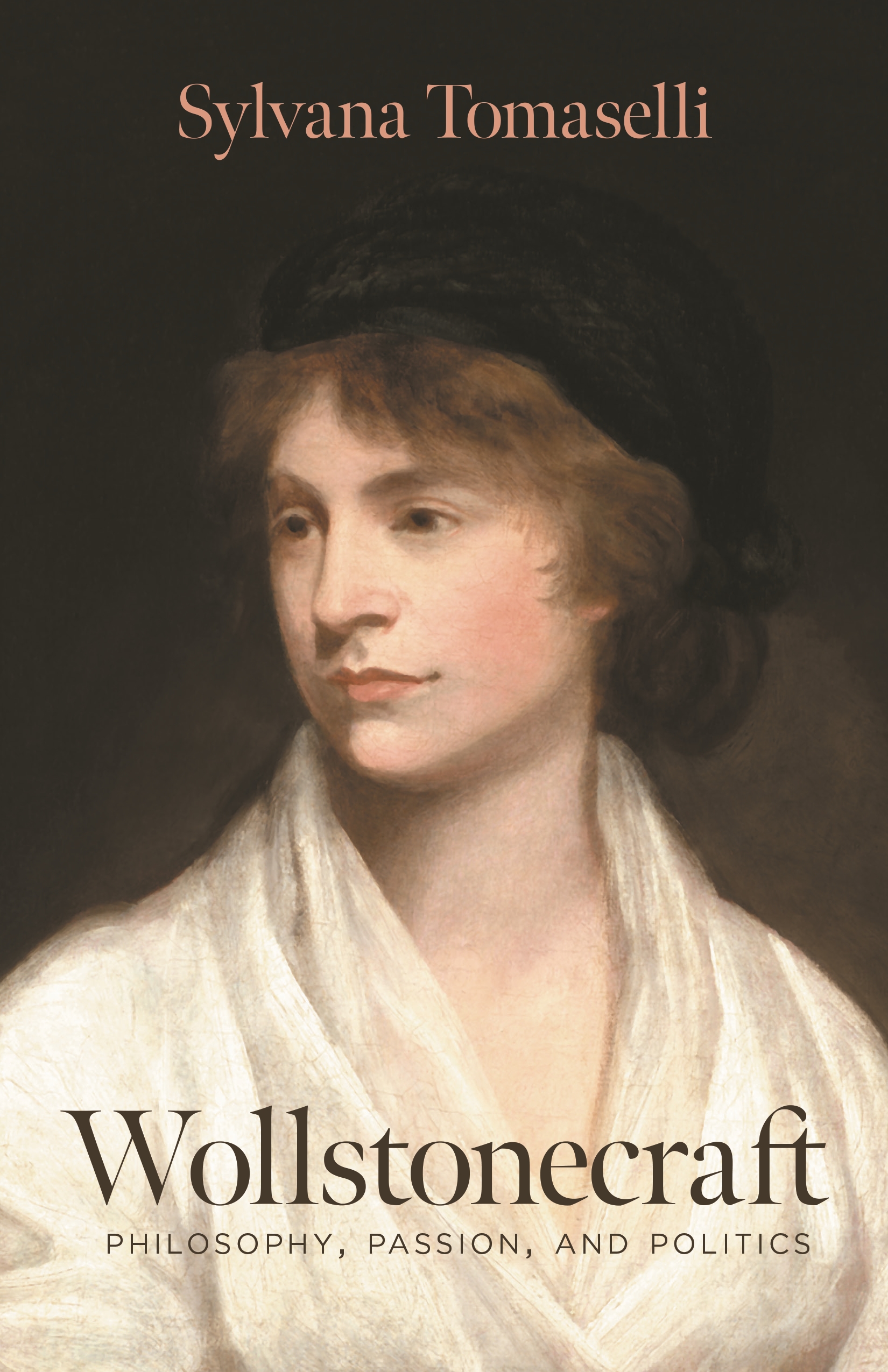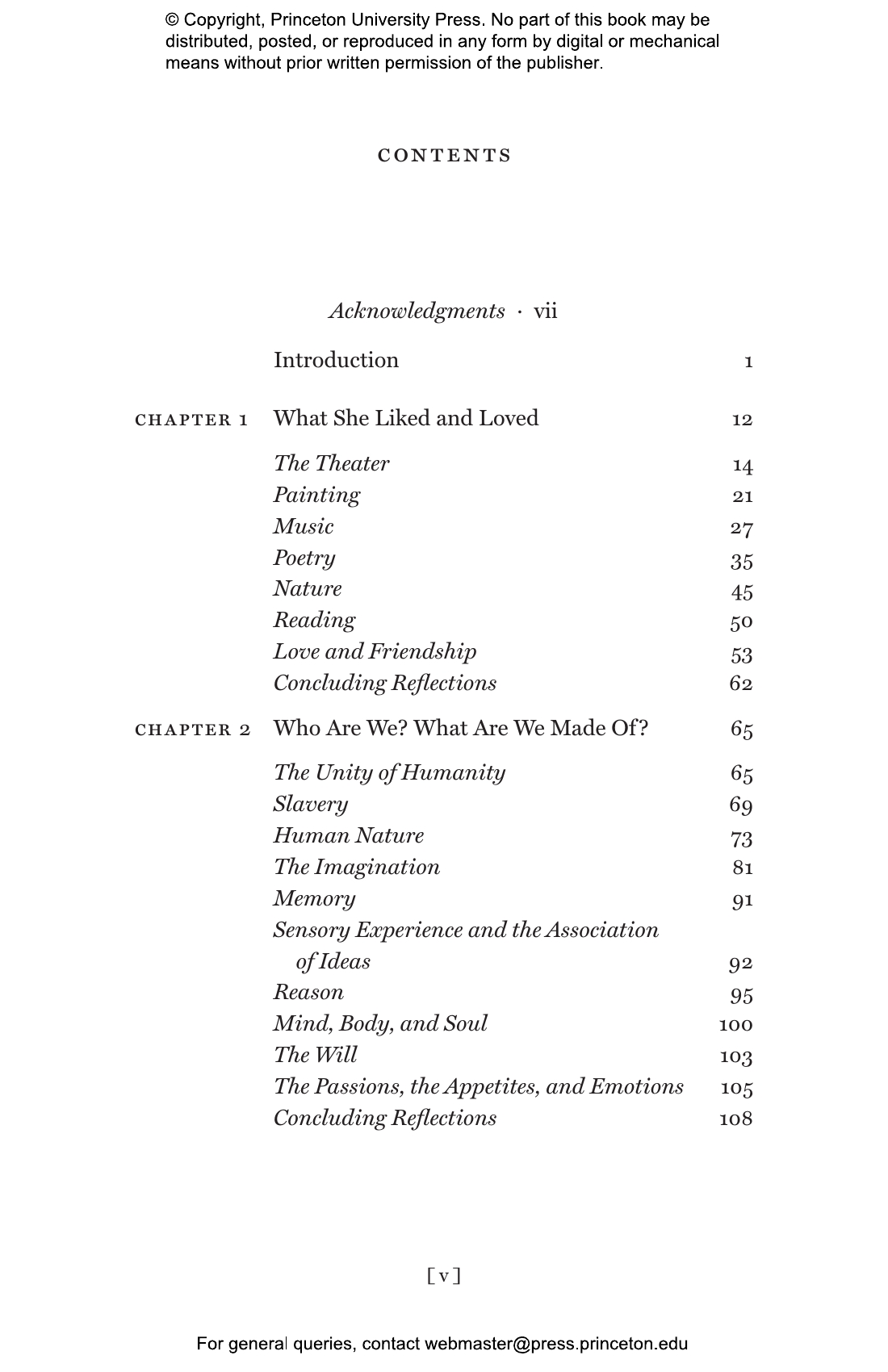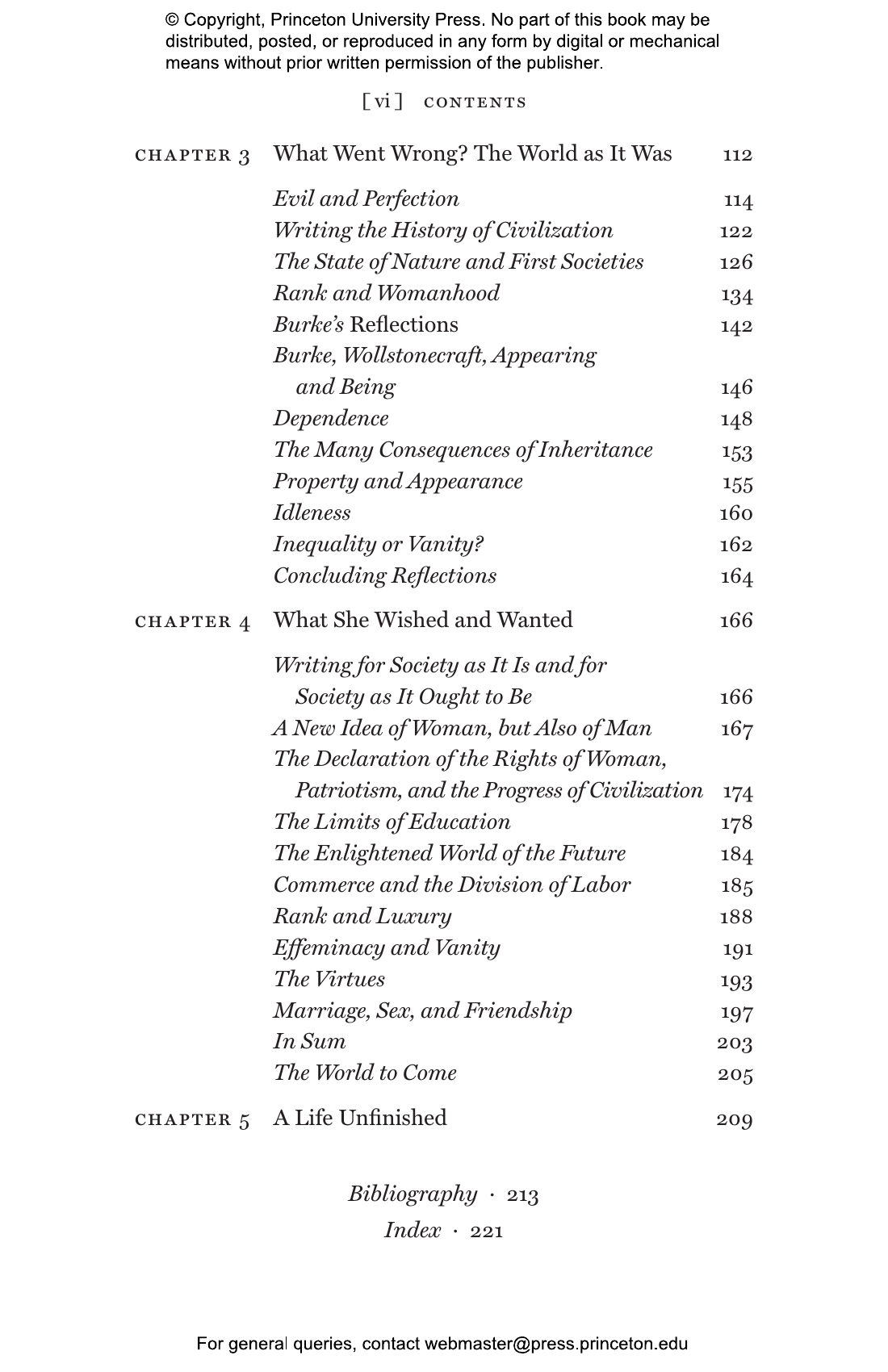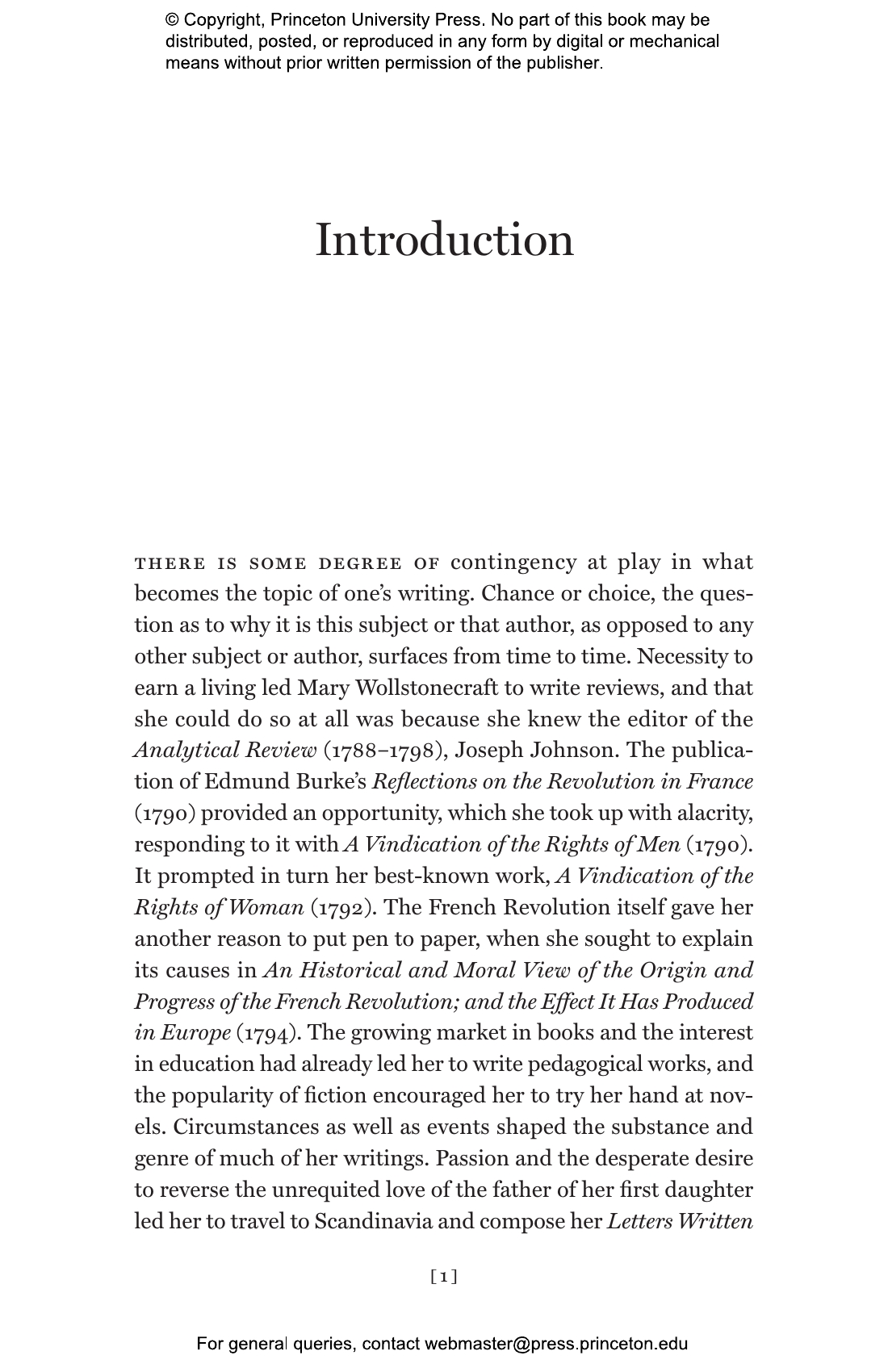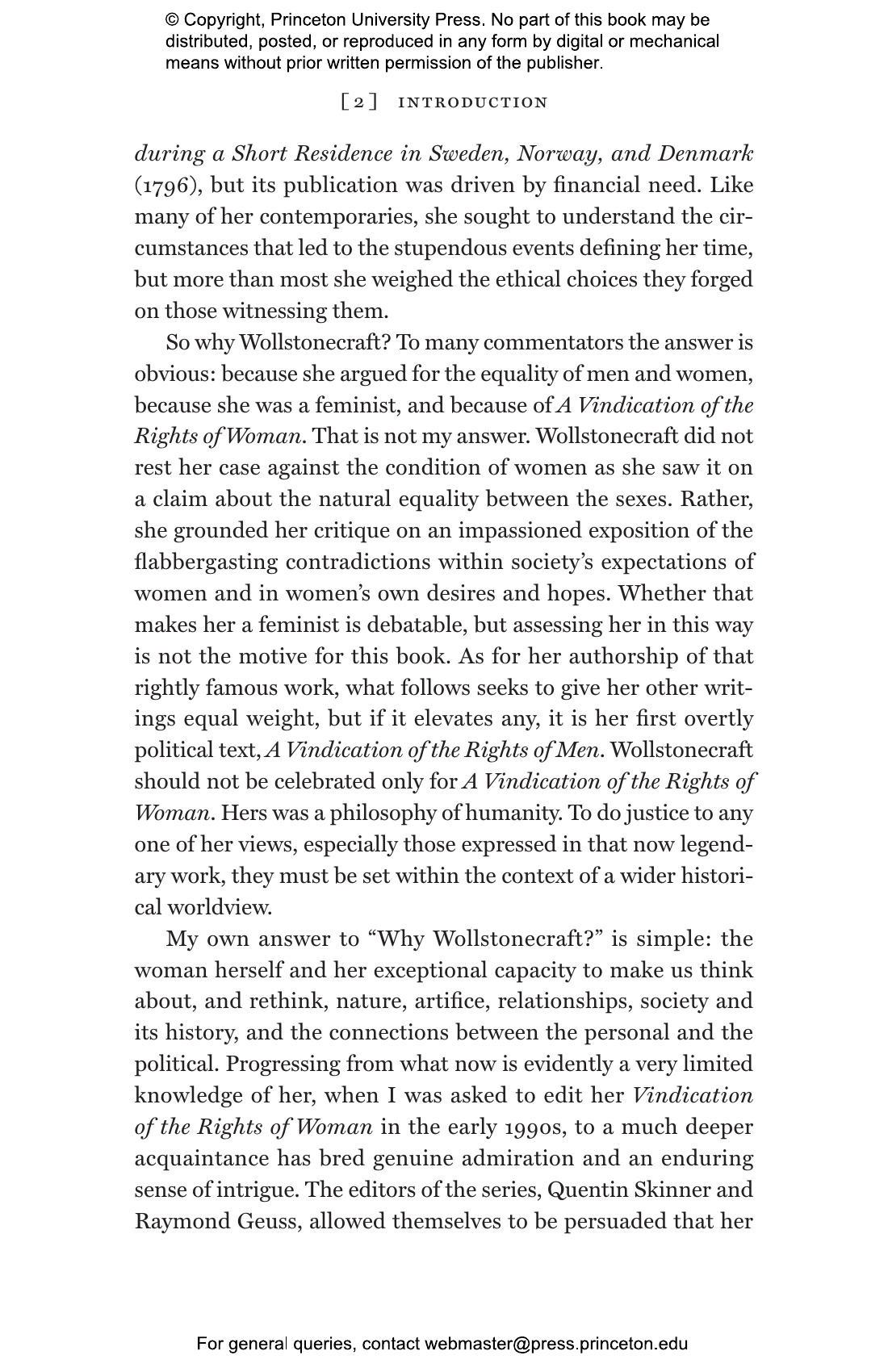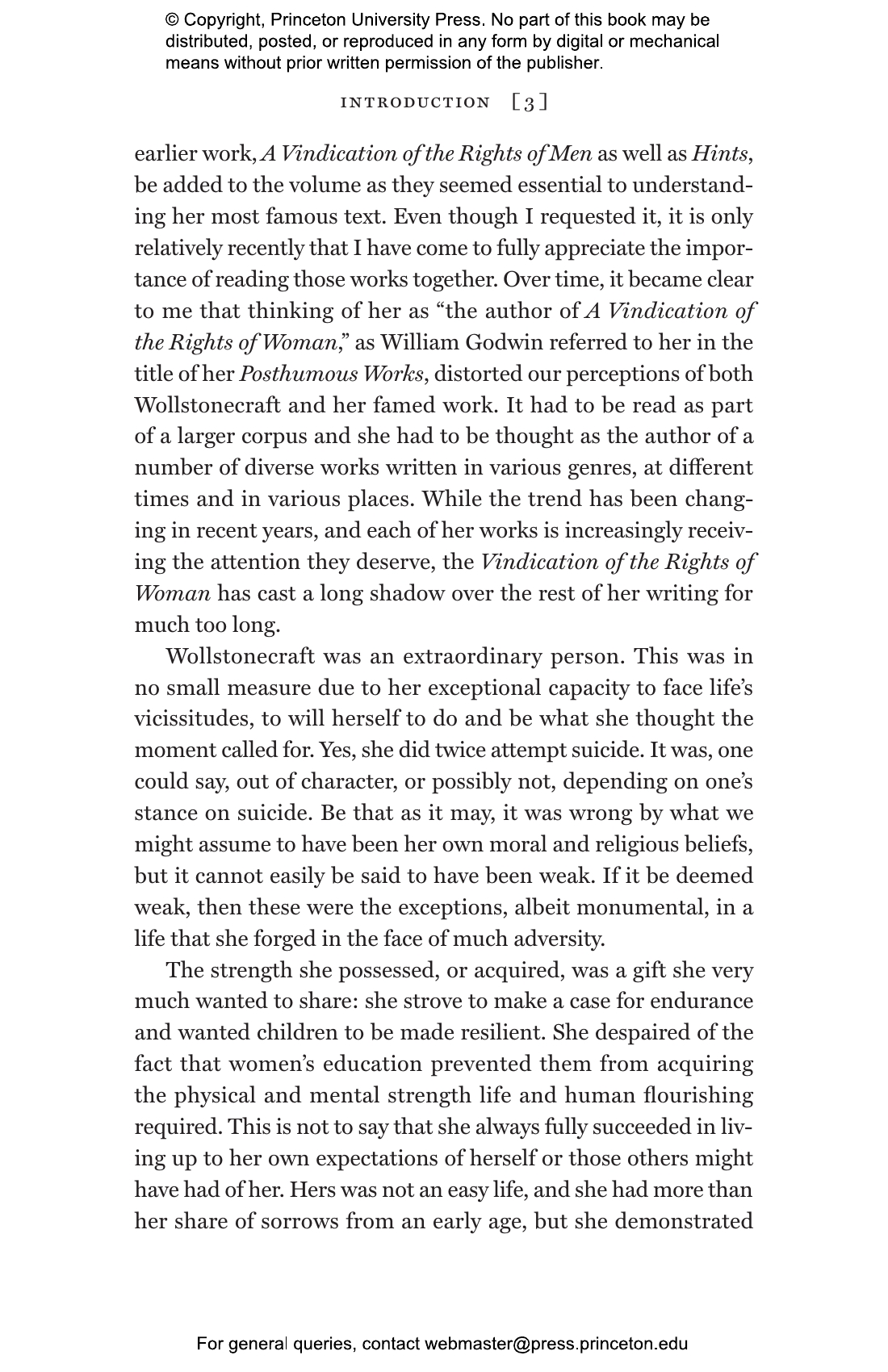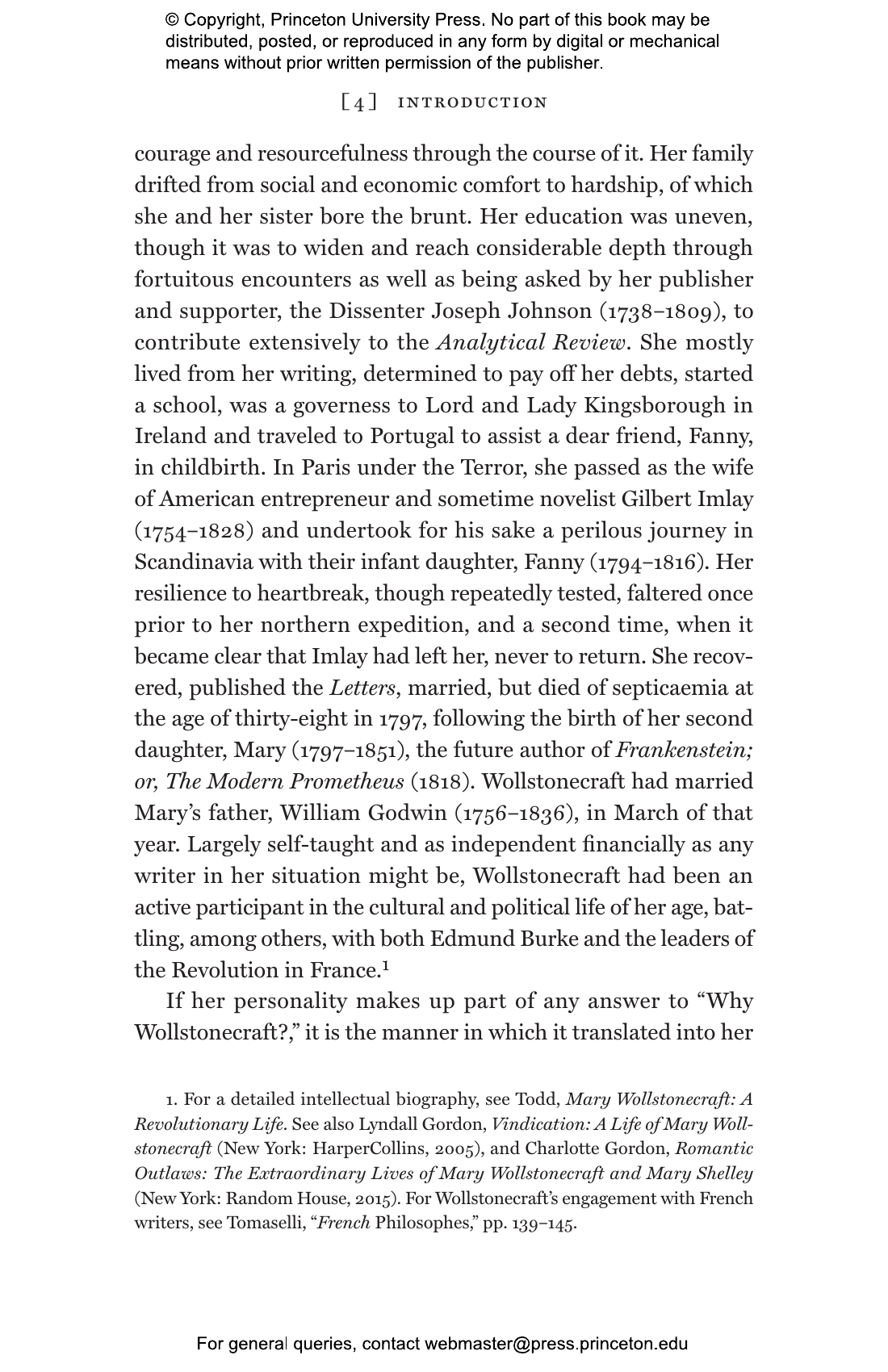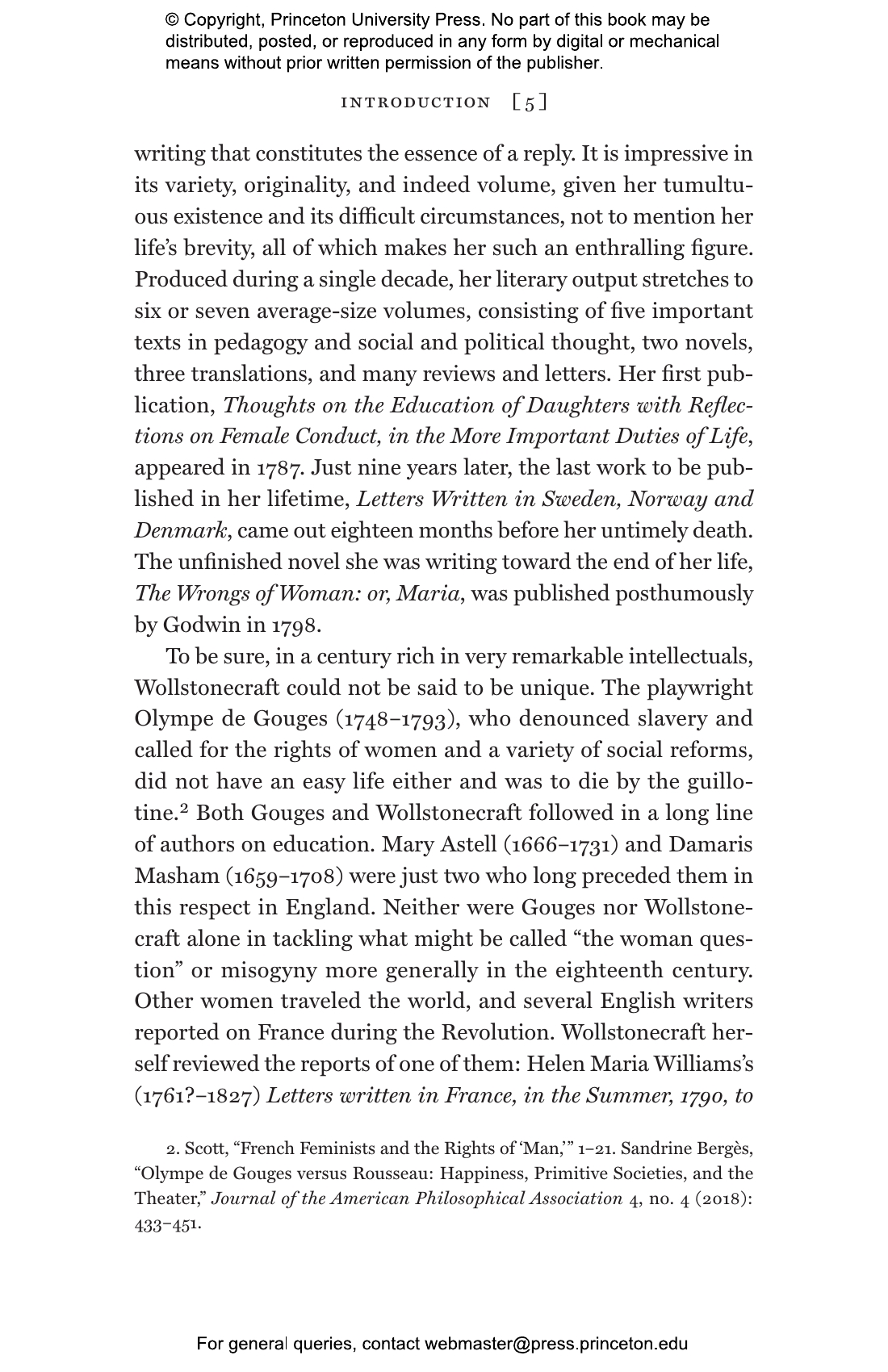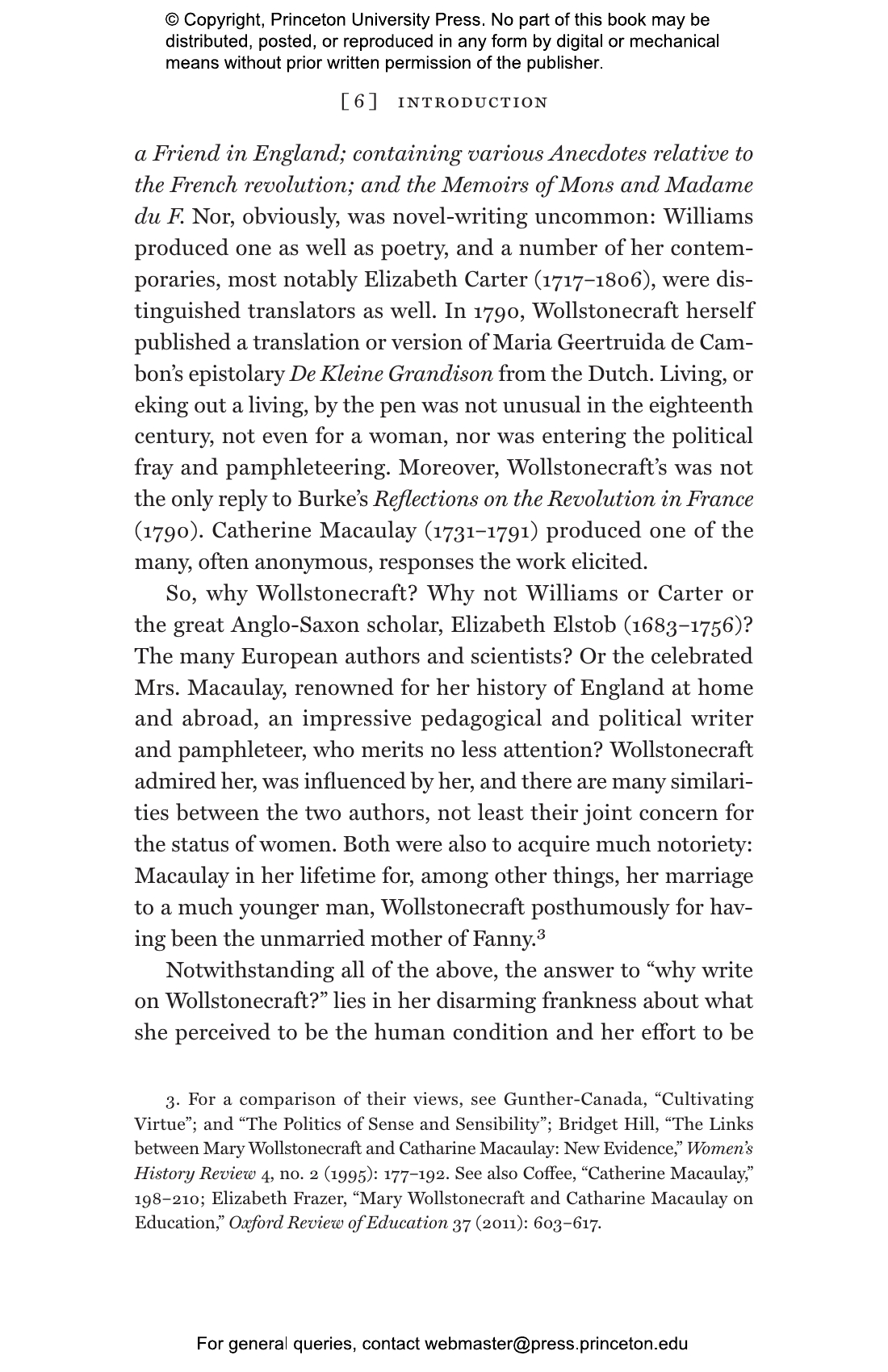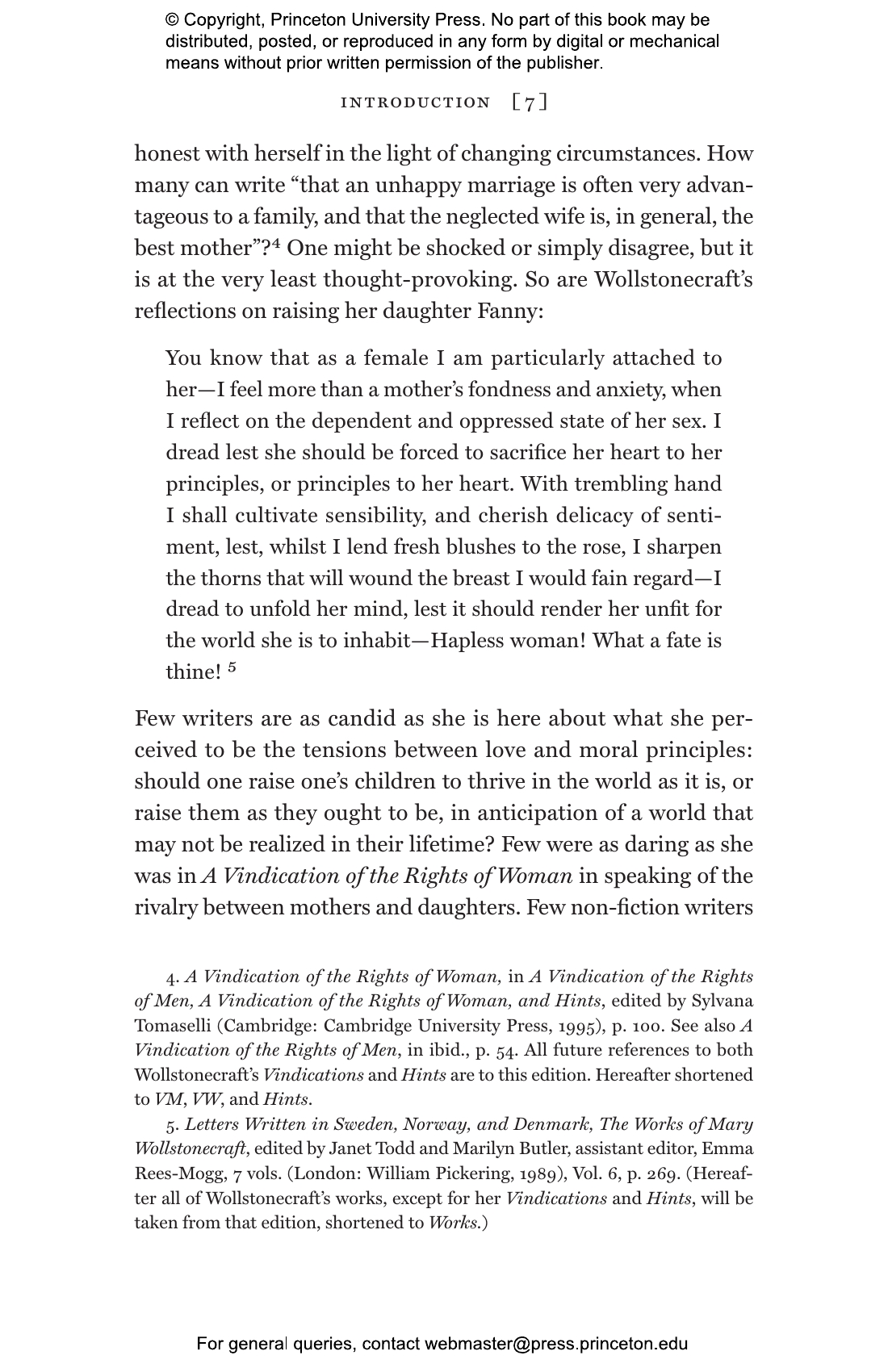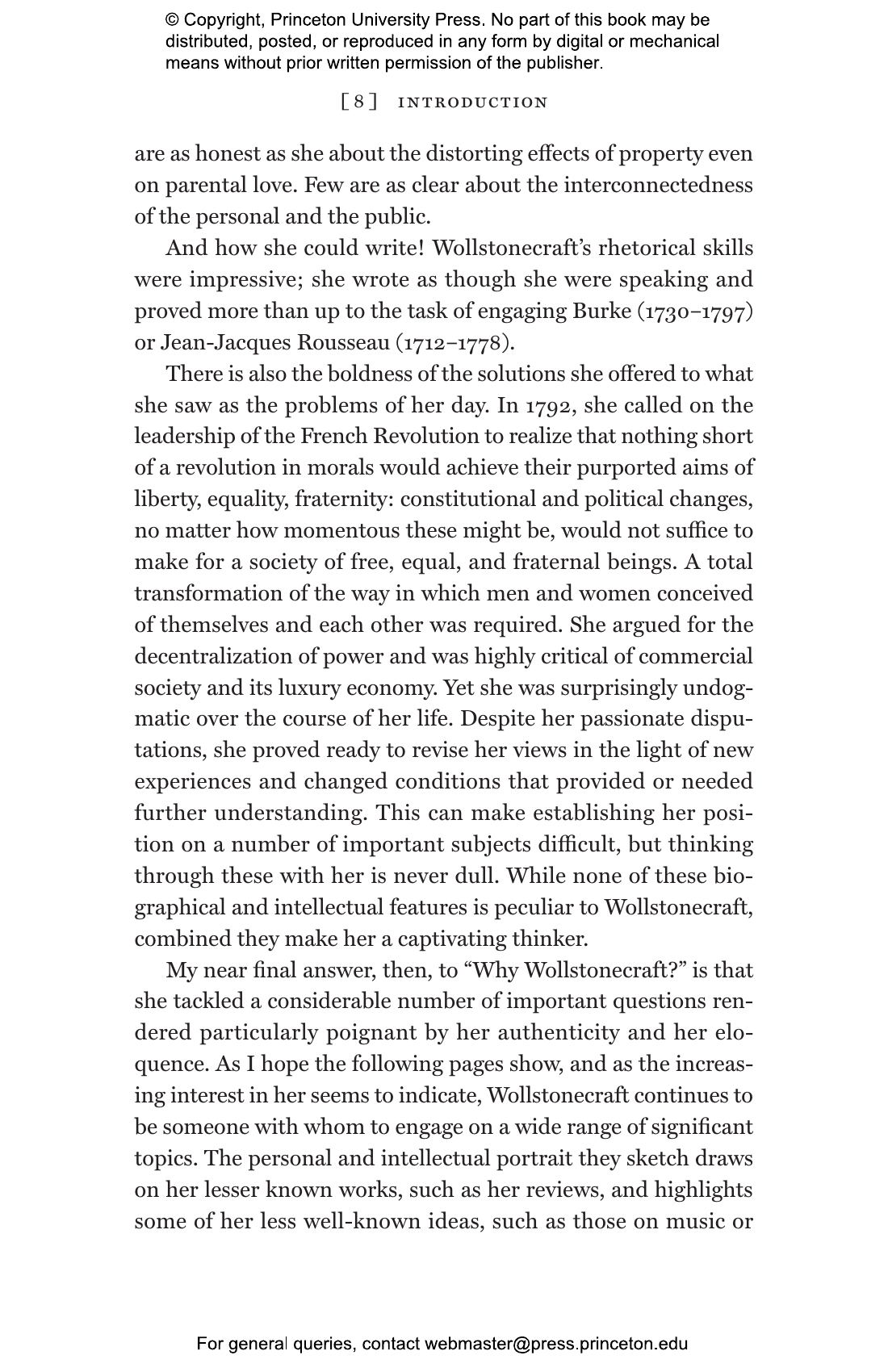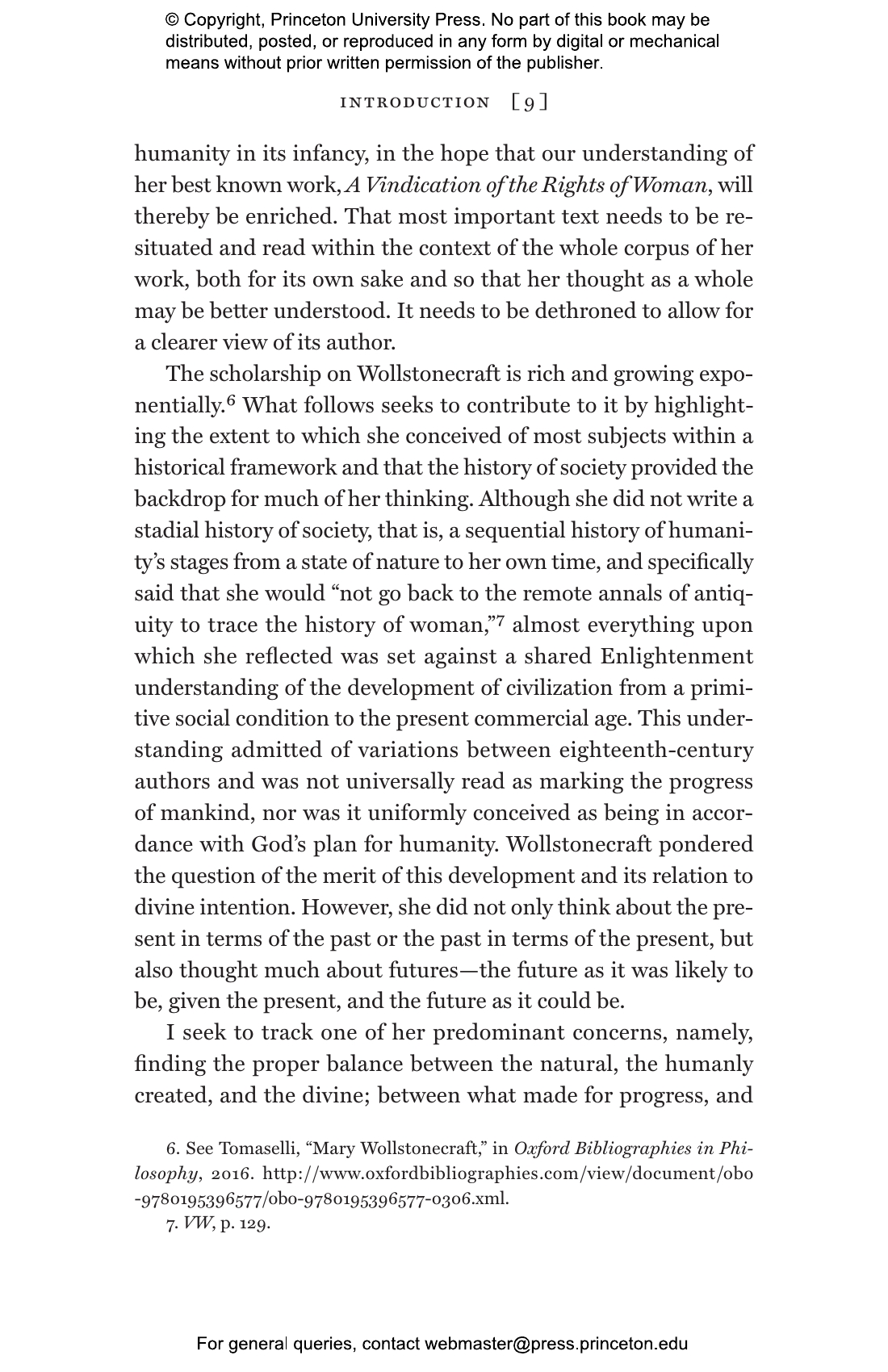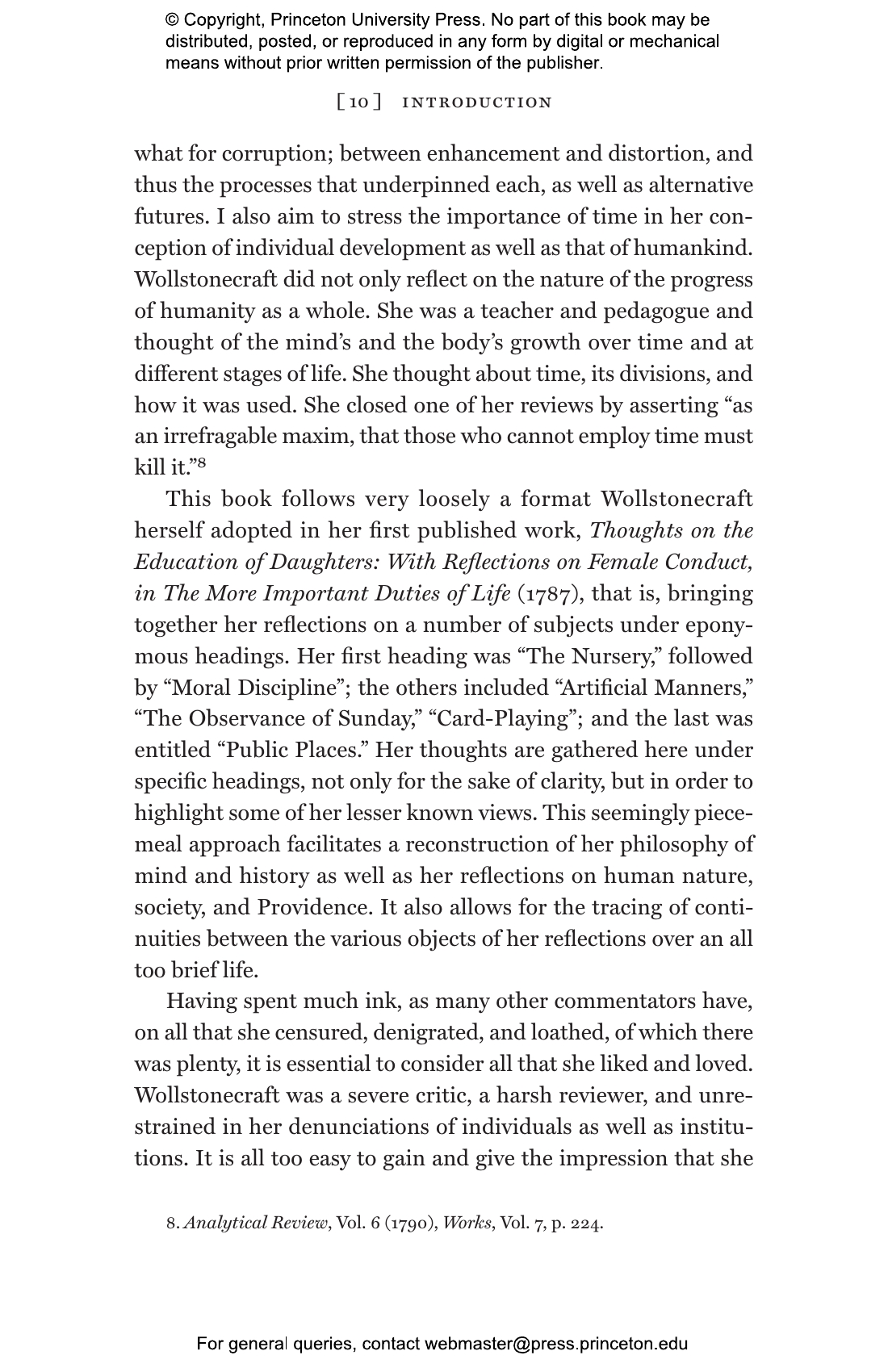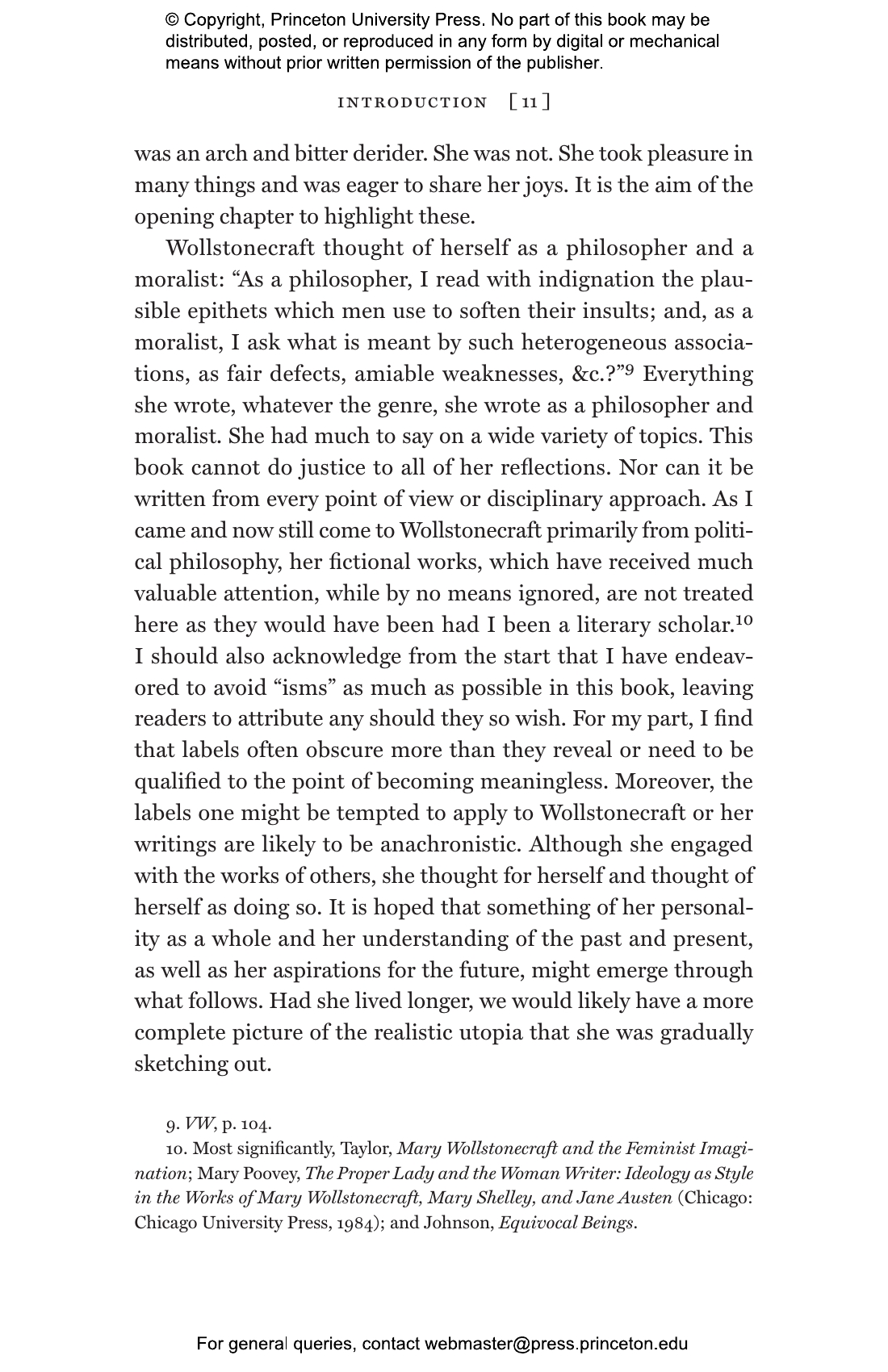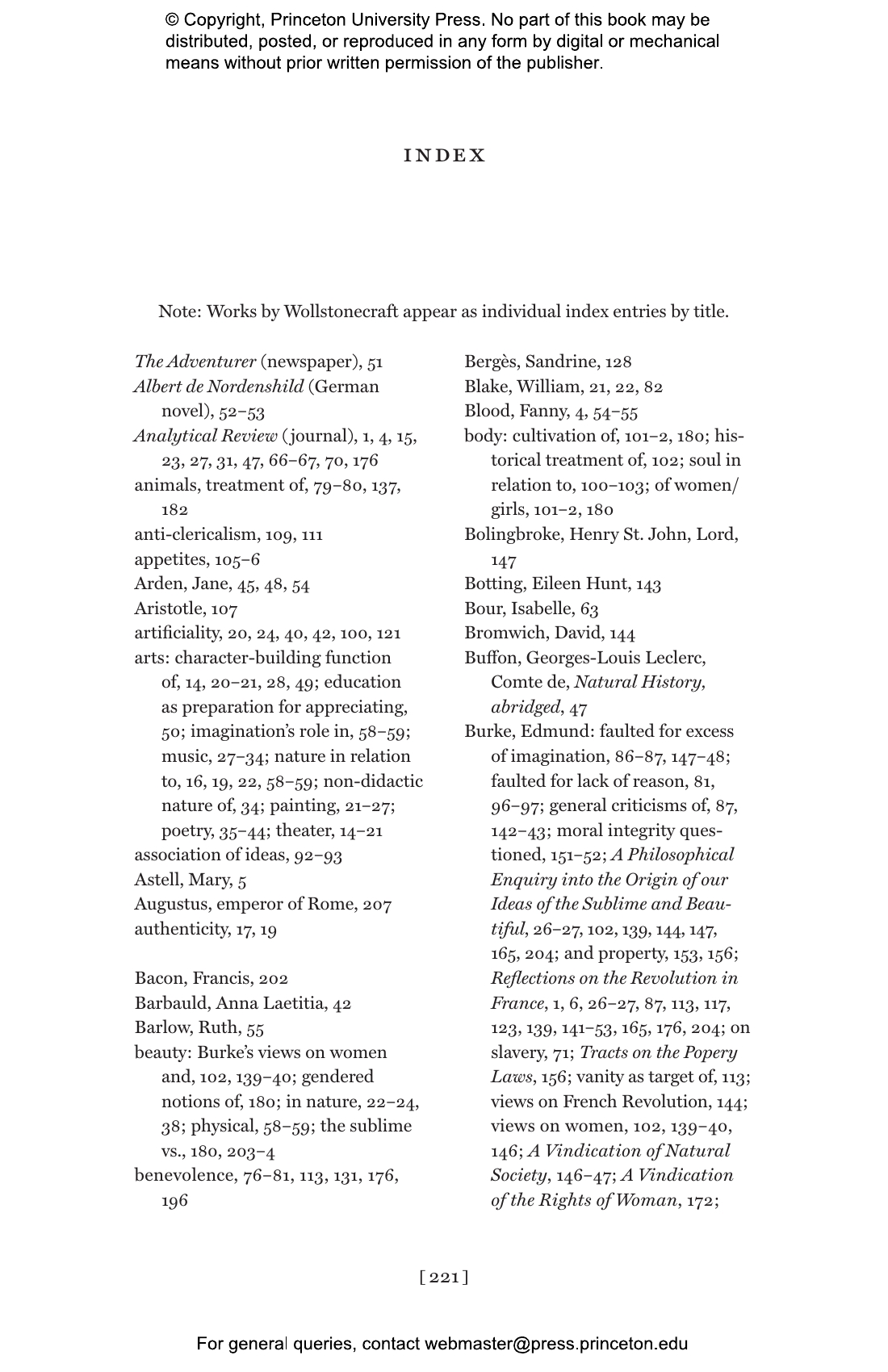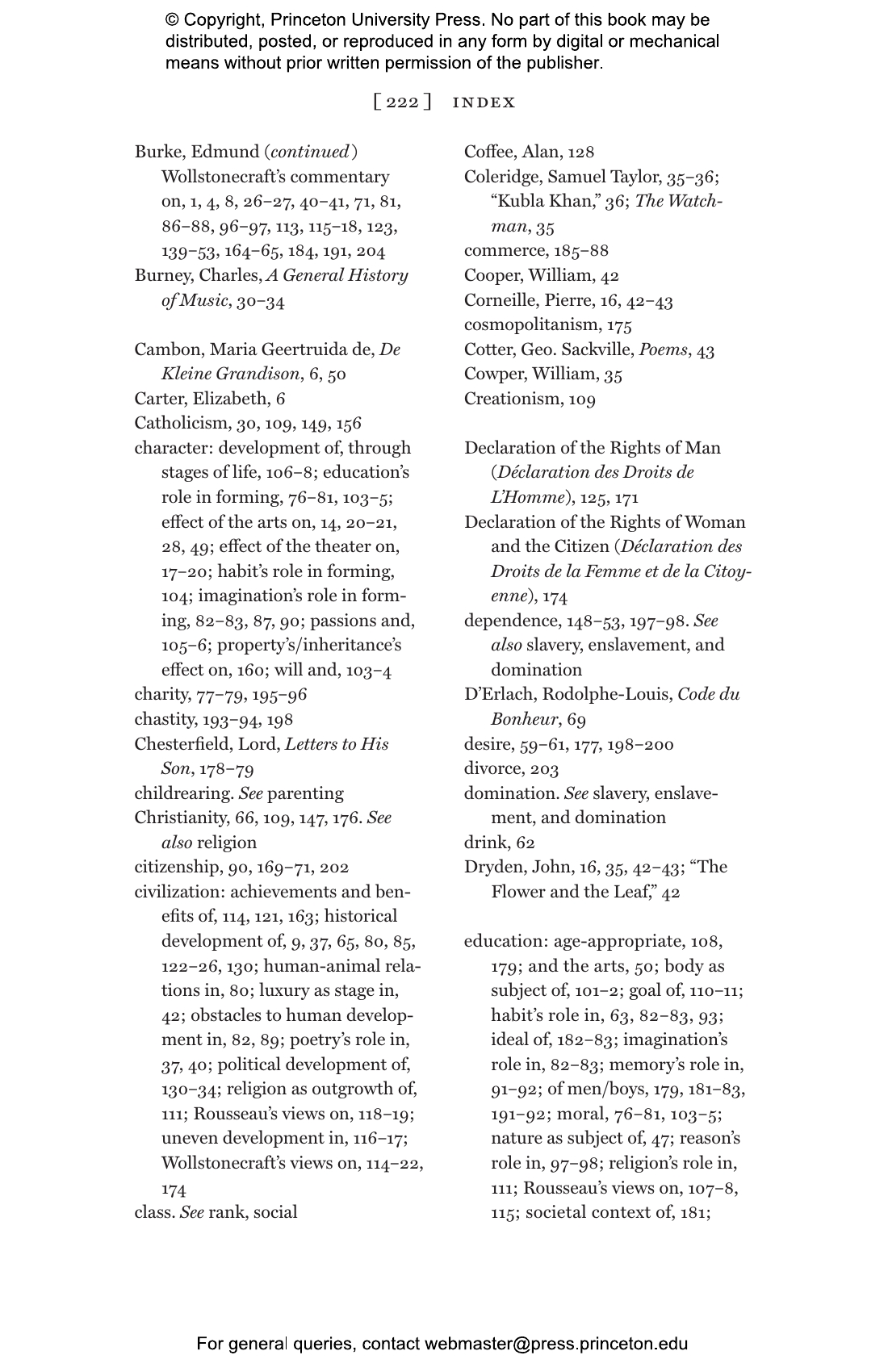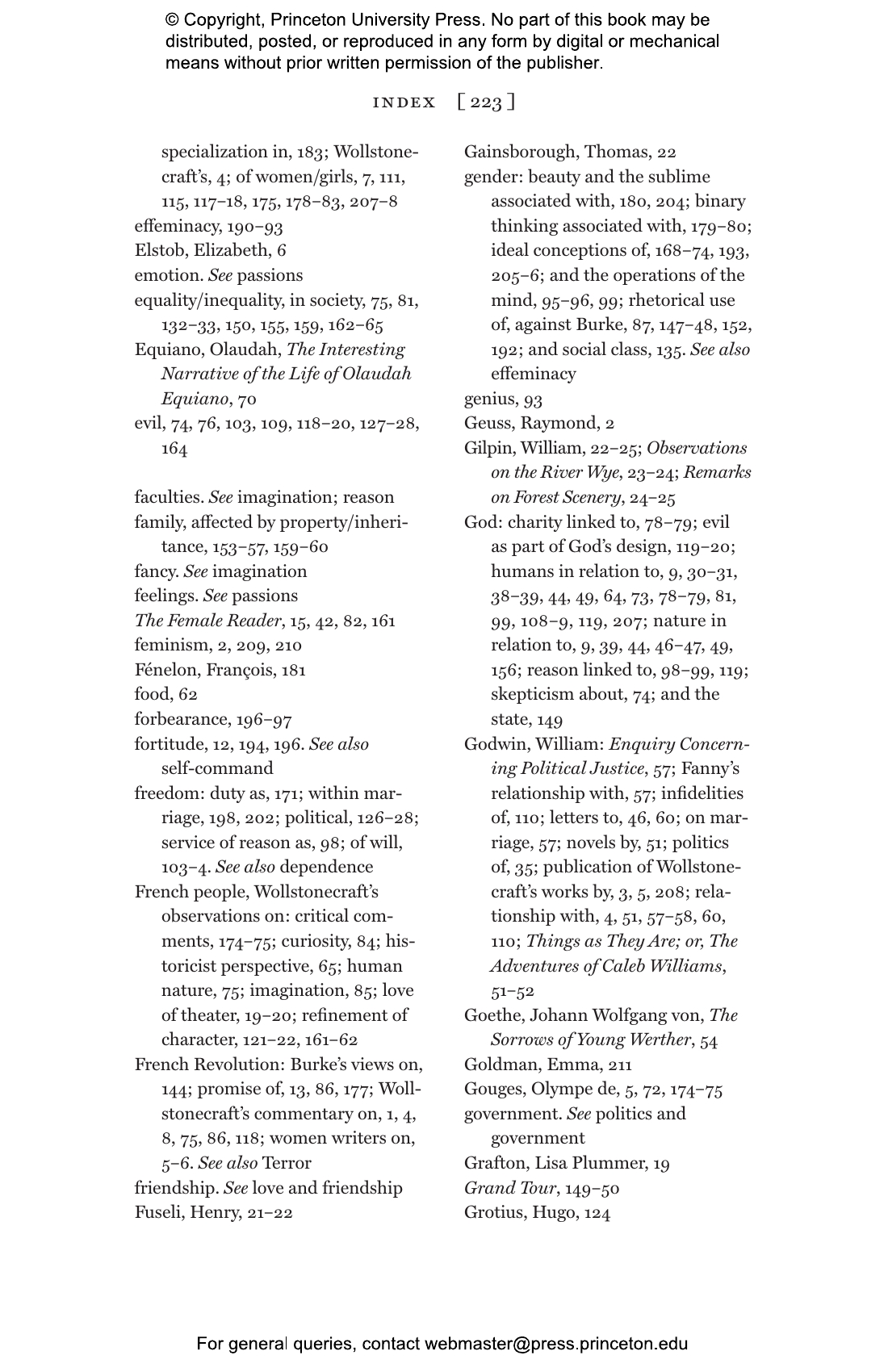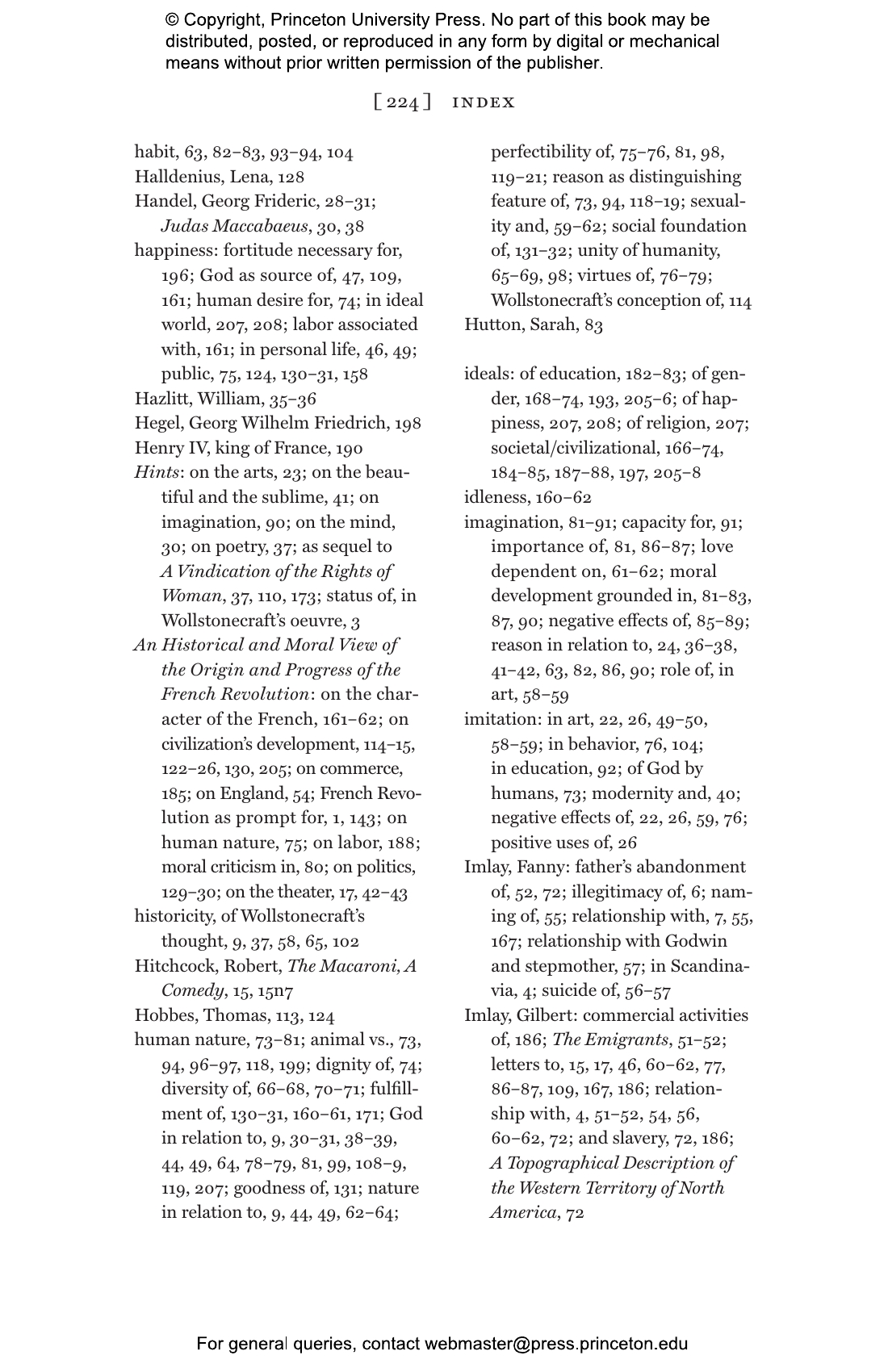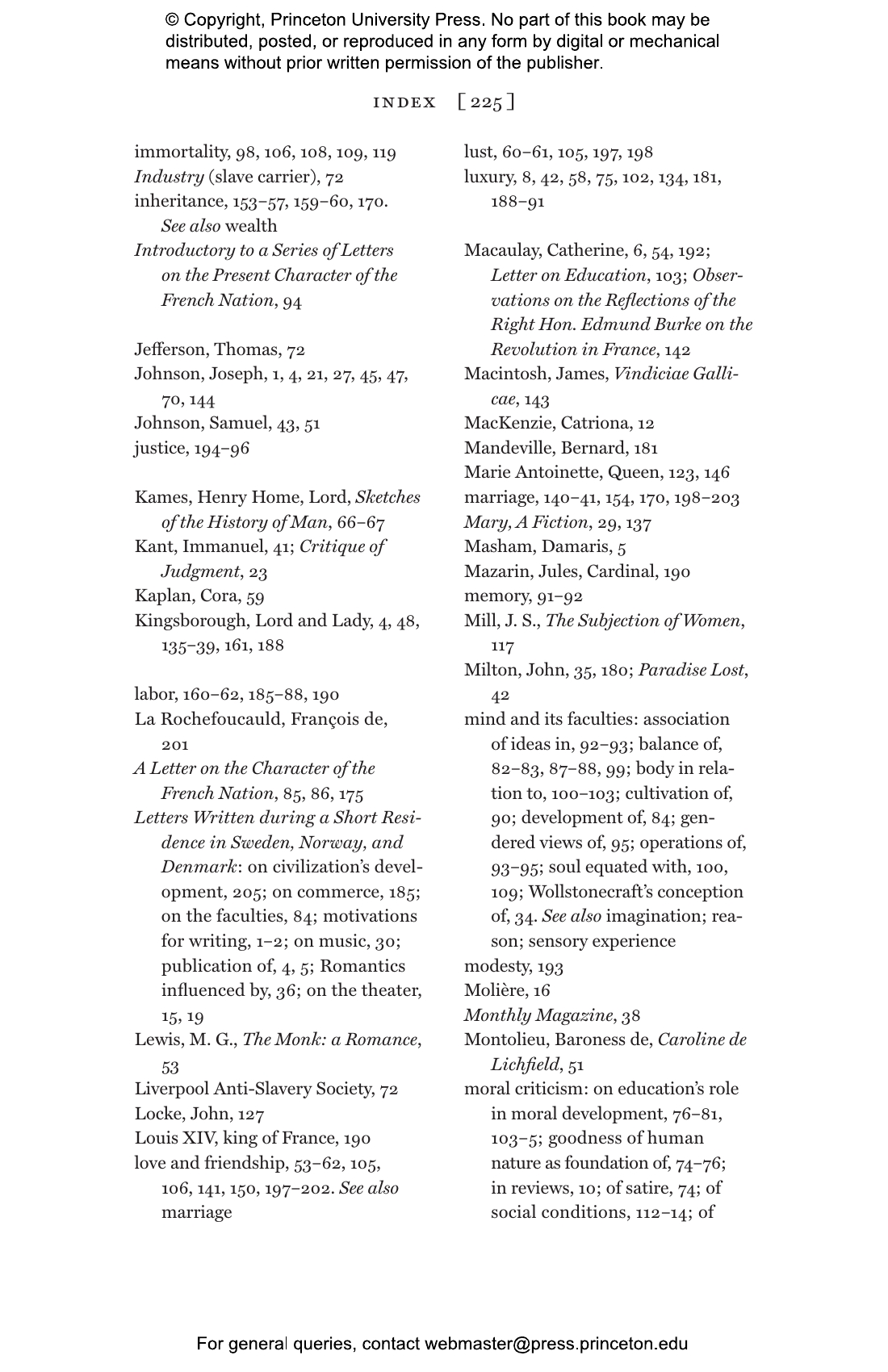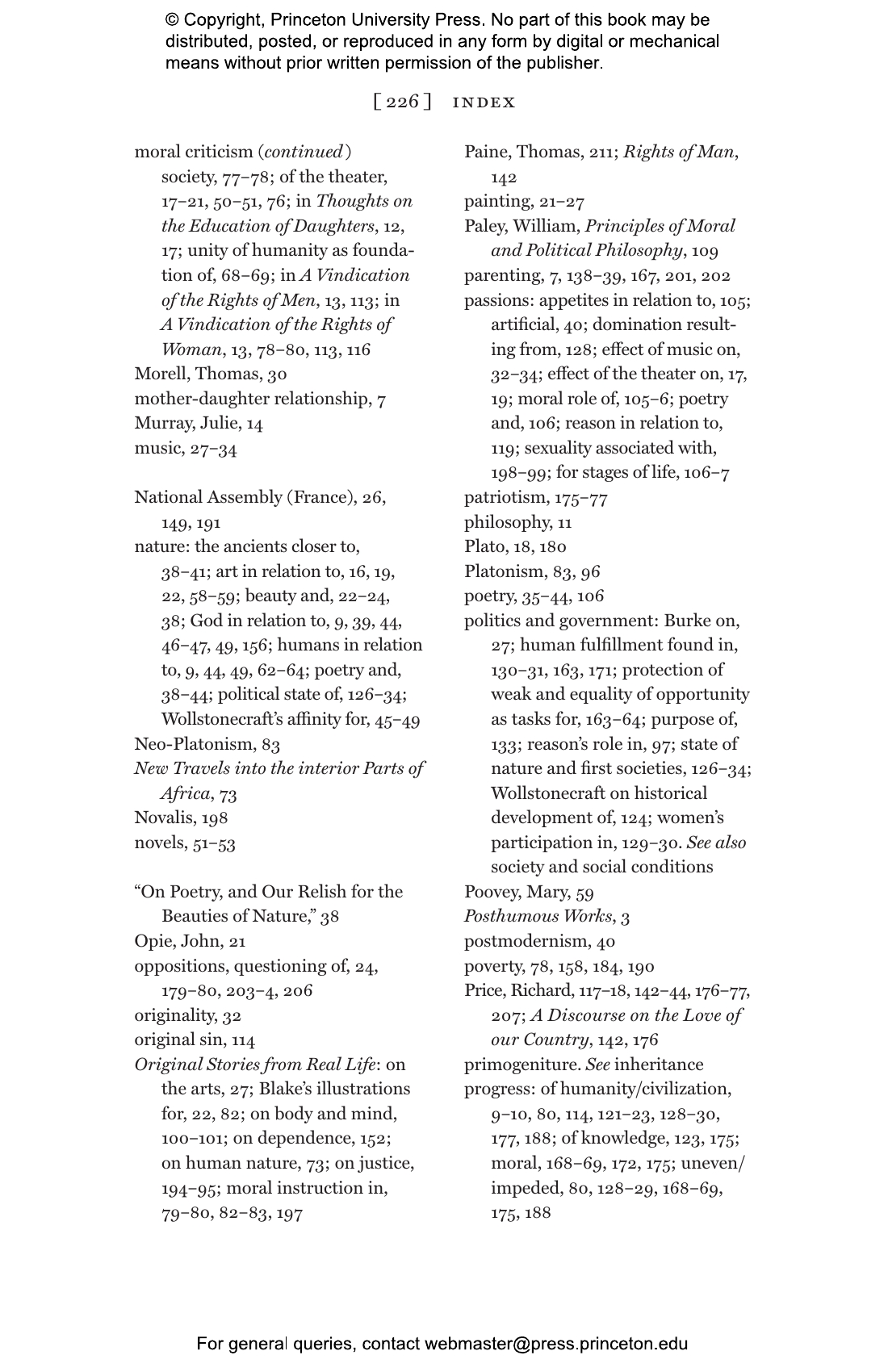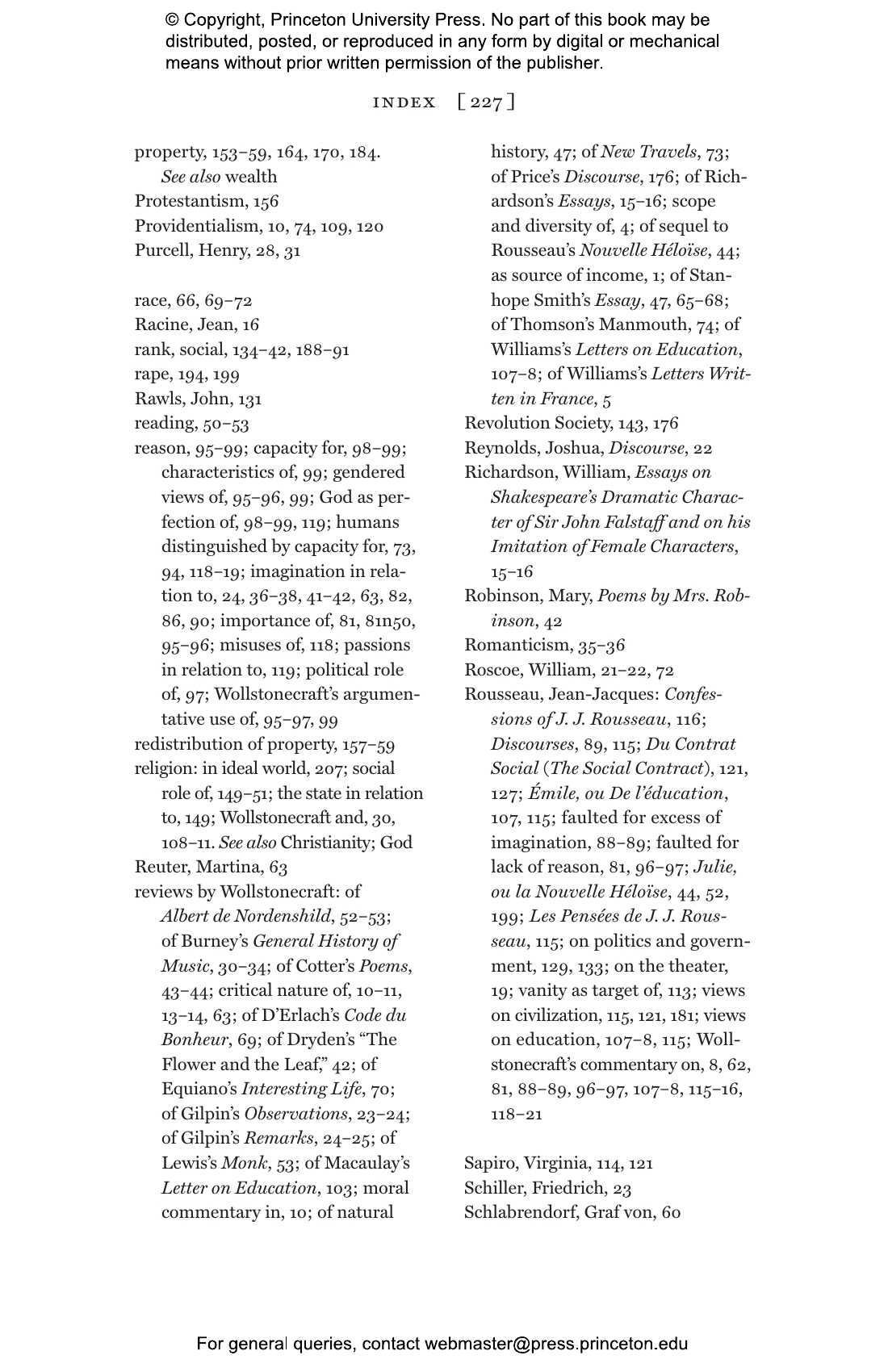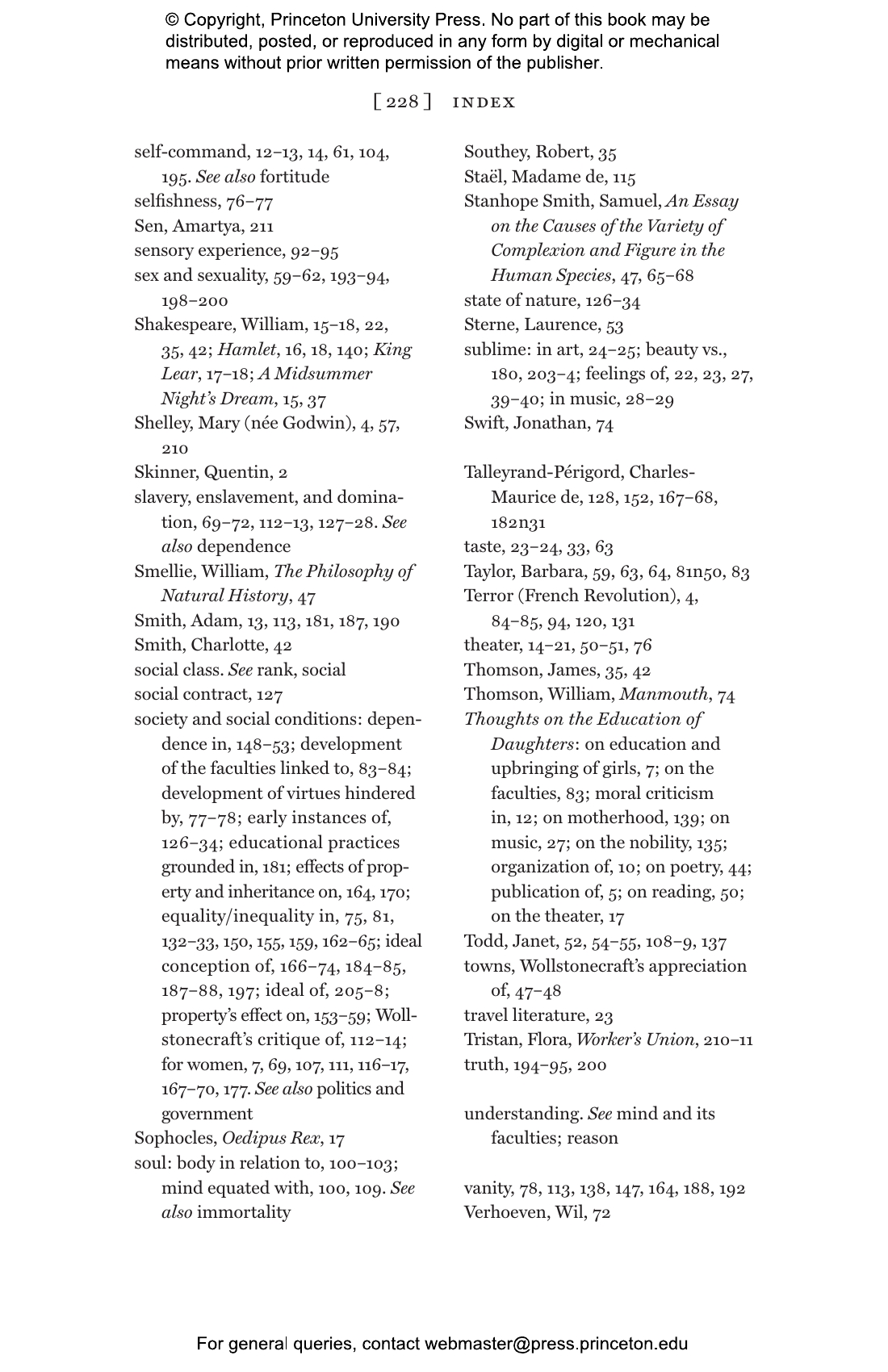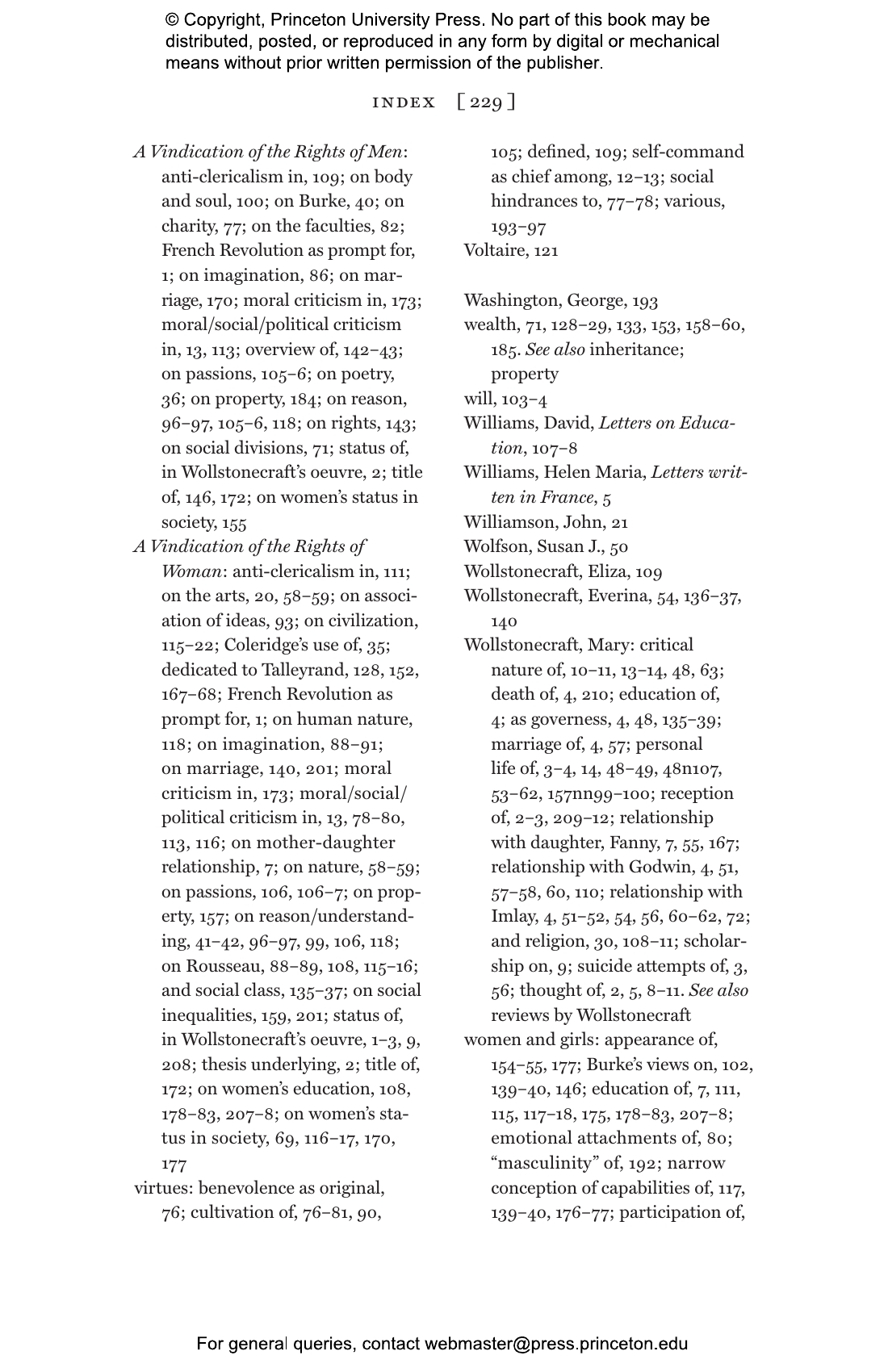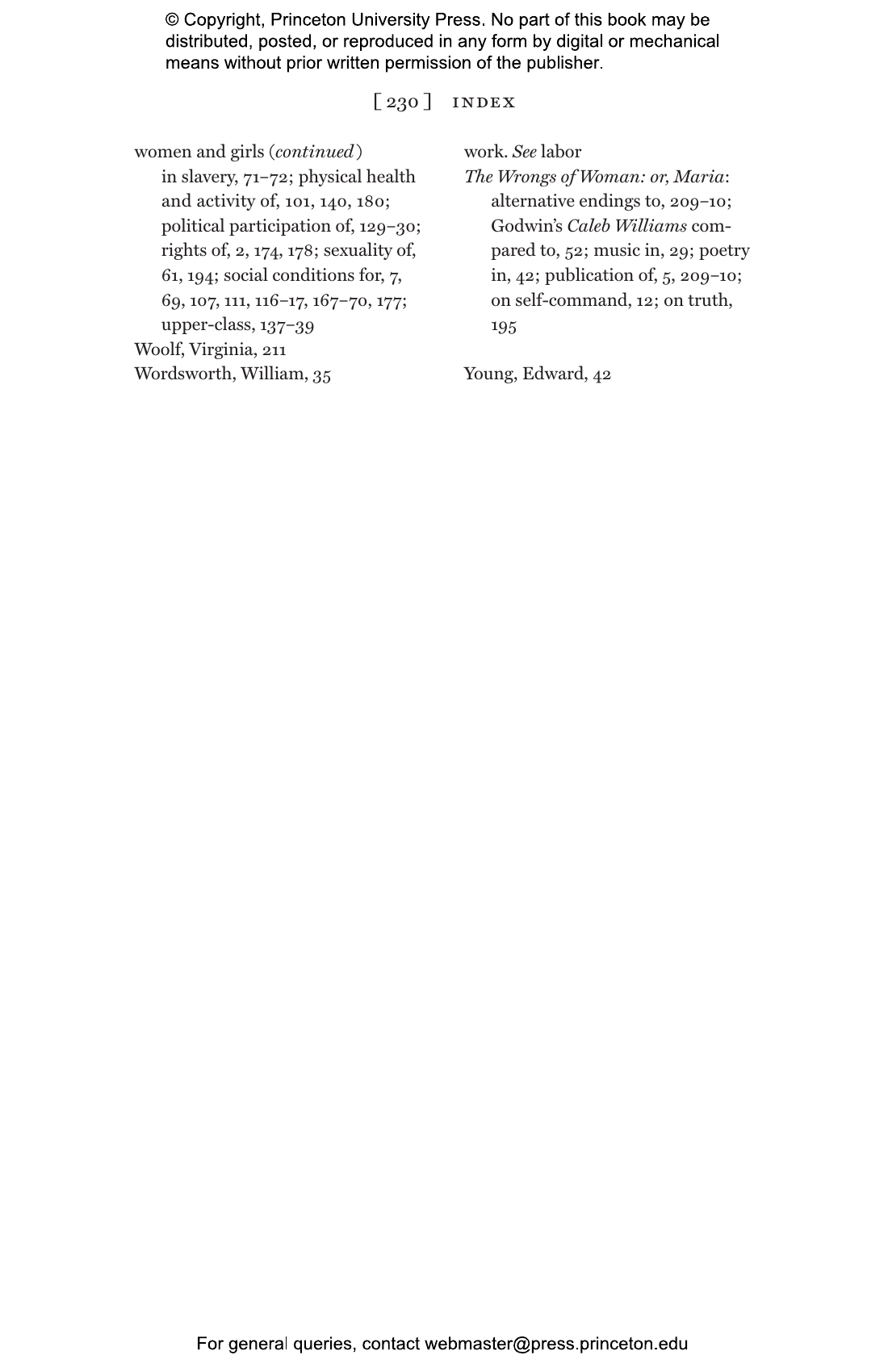Mary Wollstonecraft’s A Vindication of the Rights of Woman, first published in 1792, is a work of enduring relevance in women’s rights advocacy. However, as Sylvana Tomaselli shows, a full understanding of Wollstonecraft’s thought is possible only through a more comprehensive appreciation of Wollstonecraft herself, as a philosopher and moralist who deftly tackled major social and political issues and the arguments of such figures as Edmund Burke, Jean-Jacques Rousseau, and Adam Smith. Reading Wollstonecraft through the lens of the politics and culture of her own time, this book restores her to her rightful place as a major eighteenth-century thinker, reminding us why her work still resonates today.
The book’s format echoes one that Wollstonecraft favored in Thoughts on the Education of Daughters: short essays paired with concise headings. Under titles such as “Painting,” “Music,” “Memory,” “Property and Appearance,” and “Rank and Luxury,” Tomaselli explores not only what Wollstonecraft enjoyed and valued, but also her views on society, knowledge and the mind, human nature, and the problem of evil—and how a society based on mutual respect could fight it. The resulting picture of Wollstonecraft reveals her as a particularly engaging author and an eloquent participant in enduring social and political concerns.
Drawing us into Wollstonecraft’s approach to the human condition and the debates of her day, Wollstonecraft ultimately invites us to consider timeless issues with her, so that we can become better attuned to the world as she saw it then, and as we might wish to see it now.
"Tomaselli’s book moves dexterously between [Wollstonecraft’s] feelings and reasonings, producing a portrait that is both fresh and compelling."—Barbara Taylor, The Guardian
"Tomaselli gives us an intimate portrait of the passionate, life-loving woman behind the public moralist. . . . [A] clever and humane book."—Ruth Scurr, The Spectator
"As an intellectual biography, Tomaselli’s account is both forensic and fascinating."—Rebecca Abrams, Financial Times
"Fortitude is a quality that Tomaselli brings to the fore in her study of Mary Wollstonecraft, sensitively created from an informed overview of her subject’s writings."—Miranda Seymour, New York Review of Books
"Rigorously researched and beautifully crafted"—New Humanist
"Sylvana Tomaselli invites us to immerse ourselves into Mary Wollstonecraft’s world, looking at how she regarded family life, politics, current affairs and the roles of men and women in society."—Family Tree Magazine
"Tomaselli has herself written a book which is both inspiring and thought-provoking. In a word, Wollstonecraft: Philosophy, Passion, and Politics should be compulsory reading for all teachers and students of Wollstonecraft and eighteenth-century political thought."—Max Skjönsberg, Intellectual History Review
"This book thoughtfully and thematically walks the reader through Wollstonecraft’s work, developing a coherent philosophy from which we still have much to learn. Wollstonecraft: Philosophy, Passion, and Politics is brilliant in its combination of ease of reading, academic rigour and captivating writing. Whether the reader is an undergraduate student, seeking to place Wollstonecraft in greater context, an intrigued member of the public or a seasoned professor of political theory, Tomaselli’s work is accessible to all and has something new to reveal to all of us about a remarkable woman that history is just beginning to remember fully."—Isobel Clare, LSE Review of Books
"A very engaging and lively study of a remarkable woman."—David Lorimer, Paradigm Explorer
"A pleasure to read."—Jennifer Thorn, Eighteenth-Century Studies Review
"A readable, meticulously researched, intellectual biography and introduction to Wollstonecraft’s work that underscores her unwavering desire to create a better, more just world for all humans, not just women."—Ashley Cross, European Romantic Review
"Luminous"—Stephen Marston, Marx and Philosophy Review of Books
"Tomaselli succeeds in a masterly exposition of every facet of Wollstonecraft’s views. She draws out the complexities, contradictions and changes over time in Wollstonecraft’s thought."—Sheila McGregor, Socialist Review
"Tomaselli is a good writer and her research is excellent. This is a thoroughly fascinating book, full of enhancing detail."—Alan Dent, Northern Review of Books
"This momentous, impeccably researched, and beautifully written book recovers Mary Wollstonecraft as a unique personality and a political philosopher of note. By considering Wollstonecraft’s writings holistically, Tomaselli delivers a breathtaking new look at who Wollstonecraft really was and what she loved and believed in enough to write about, argue over, and risk her life for."—Eileen Hunt Botting, author of Wollstonecraft, Mill, and Women’s Human Rights
"Here is an original and thought-provoking introduction to the life and work of Mary Wollstonecraft. Drawing upon a wide range of Wollstonecraft’s writings, including her letters and numerous book reviews, Tomaselli shines new and surprising light on A Vindication of the Rights of Woman."—Karen O’Brien, author of Women and Enlightenment in Eighteenth-Century Britain
"Wollstonecraft is a multidimensional portrayal of an all-too-short life in which writing was Mary Wollstonecraft’s triumph over adversity. Tomaselli wants us to appreciate what Wollstonecraft ‘liked and loved’ as much as what she condemned, and how much she gained from the works of her chosen antagonists, Jean-Jacques Rousseau and Edmund Burke, even as they enraged her. Reading A Vindication of the Rights of Woman alongside A Vindication of the Rights of Men, Tomaselli treats both as expressions of Wollstonecraft’s commitment to the perfection of humanity."—John Robertson, University of Cambridge
